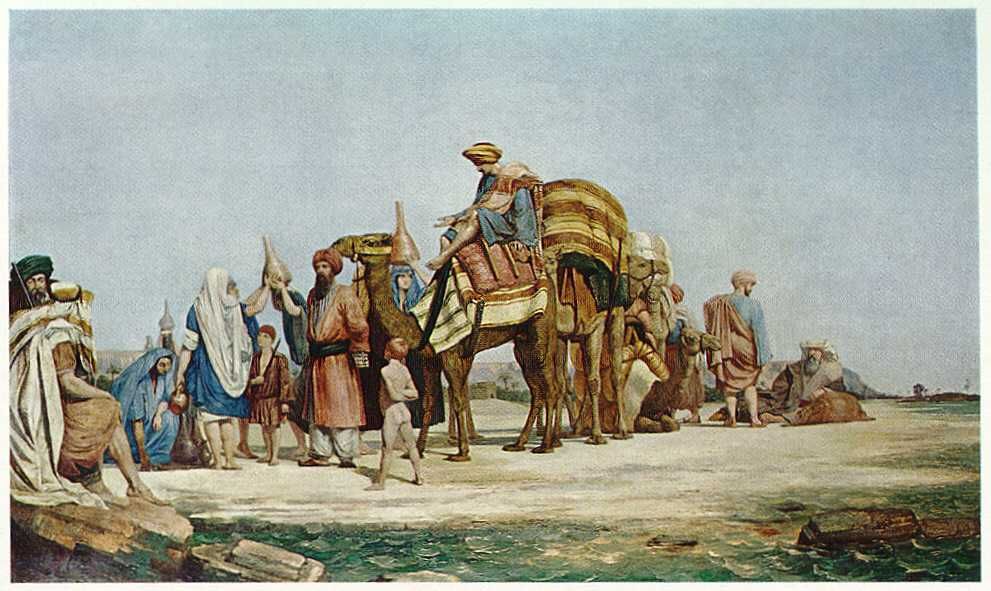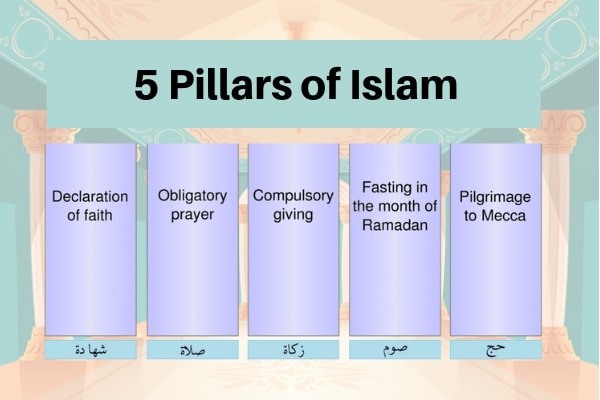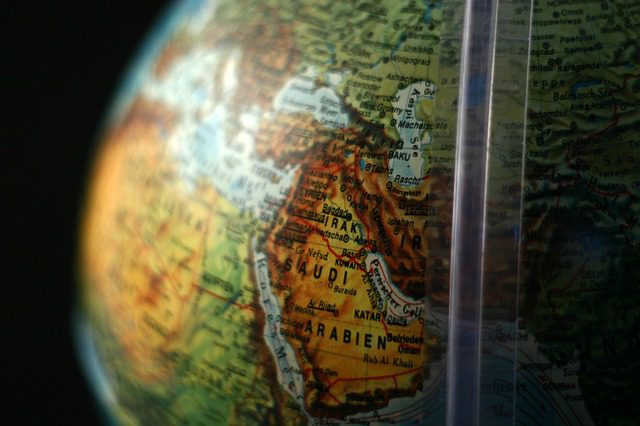The spread of Islam has deeply shaped the world, offering a unique combination of intellectual clarity, practical wisdom, and spiritual peace. From North Africa to Asia and parts of Europe, Islam’s appeal lies in its simple and powerful message of monotheism, justice, and personal growth.
Through trade, peaceful missions, and conquests, Islam reached diverse cultures, influencing societies globally. Interested in how it all began and its profound impact on history? This article explores how Islam spread, its key beliefs, and how it changed societies across continents.
Are you proud of being a Muslim? Do you know that you can increase this feel by knowing more about how did the spread of Islam affect the world? How did Islam spread across North Africa, Asia and parts of Europe?
Also, do you know anything about the uniqueness of the five main beliefs of Islam, or that of Islam in general? Are you interested in knowing the reasons for the spread of Islam? Then this article is for you.
Table of Contents
How Did the Spread of Islam Affect the World?
To begin with, Islam carries the power of spread and attraction within its principles. Islam urges people to learn and to spread their knowledge. Also, Islam calls to free people from the salvation for human or otherworldly desire to the salvation to their Creator, which is the real freedom.
Adding to that, Islam is compatible with the intellect and common sense. Islam doesn’t separate between this life and the afterlife; you take this one as a place where you prepare for the other.
Thus, in Islam, you can turn your habits into acts of worship just by having a good intention. For example, you can take a reward for your sleeping if you intend to take it as a means for helping you to keep your power in your acts of worship. Also, you can intend by work to help the Muslims and to provide lawful money for yourself and your family, etc.
Reasons for the Spread of Islam

In addition to the general reasons mentioned in the previous idea, there are main reasons for the spread of Islam:
- Islam is a universal religion targeting to reach the whole world through its call. Thus, it urges its followers to spread its principles in different ways. Prophet Muhammad (pbuh) says:
“ By Him in Whose hand is the life of Muhammad, he who amongst the community of Jews or Christians hears about me, but does not affirm his belief in that with which I have been sent and dies in this state (of disbelief), he shall be but one of the denizens of Hell-Fire,” [Muslim].
Individually, the Muslim should call for Allah, the Almighty, with wisdom and good admonition.
On the country level, Muslims start with the peaceful ways to call the other countries for Islam. If they refuse, Muslims call them to allow them to call the people of the country and to pay Jizyah.
Finally, if they refuse, Muslims fight the tyrant powers to be able to call their subjects for Islam, which is the main purpose for the wars taking place to spread Islam. The openings in Islamic history prove the good intentions of their leader in contrast to any other conquests that happened in history.
- Islam, by its call, targets to bring people out of the darkness of disbelief to the light of belief. Islam calls people to their true salvation through worshipping One God to be free from the Hellfire in the Hereafter.
- The clarity of the Islamic creed is one of the main reasons for spreading Islam. It’s easy to understand and apply in daily life as well. And when this is combined by the compatibility of Islam to intellect and common sense, it adds to its attraction.
- The balance between the body and the soul in Islam.
- The Islamic openings to some countries, under the conditions mentioned in the first reason. However, we can say that only one-third of the areas opened to the call by the wars, while the rest opened without the entry of the Islamic armies.
How Did Islam Spread across North Africa, Asia, and Parts of Europe?

- North Africa
The first connection with Africa was early in Islam. It happened when a group of Muslims sought the refuge of the just king of Abyssinia, by the Prophet (PBUH) advice, at that time escaping from their tribes in Makkah. Later, immigration movement was a significant role in spreading about Islam in Africa as well.
Then at the time of the Caliph Omar Ibn Al-Khattab, his leader Amr Ibn Al ‘As opened Egypt. After that, Egypt turned to be a base for spreading Islam to the rest of the region. This role is highlighted by Al Azhar that led the mission of spreading Islam and Arabic.
At the time of the Caliph Othman Ibn Affan Maghrib countries started to see the opening, then the matter continued at the time of Caliph Mu’awiyah, led by his leader Uqbah. Uqbah established the city of Kairwan. It turned to be a center for spreading the principles of Islam and Arabic. Later, Islam spread in the rest of North Africa.
Then this role and effect started to decrease by the invasion of the European countries. However, some cultural and social effects still find their place.
- Asia
Indeed, Islam reaches different areas from Asia. It reaches Turkmenistan, parts of China, India, and Burma. There were a group of Muslim scholars, especially from India and China, appeared in that area and exert efforts to spread Islam. However, the situation in these countries has now deteriorated. Muslims there face severe torture and injustice. Consequently, huge numbers of those Muslims from Burma gathered in Arakan, and still face an ethnic cleansing from the governments there.
How Did Trade Help Spread Islam?

Southeast Asia has a case different somehow. Islam is mainly spread in Asia not by the armies, but through the Muslim traders.
In the area of Southeast Asia, the Muslim traders played a great role to spread Islam there. In fact, what helped them in their mission was mainly the power of the Islamic Caliphate at that time in addition to the Islamic morals, especially justice, that they were abided by. In general, the powerful countries can spread their ideas, but what was unique for Islam is that it is the religion of Allah the All-Knowing.
Thus, millions of people in this area convert to Islam peacefully; for example Indonesia. Jawa Island turned to be a center for spreading Islam in the area.
However, after the invasion of the European countries, Muslims of these countries lose part of their connection to Islam in different ways.
How Did the Spread of Islam Affect Europe?
It’s not strange to know that Islam has reached Europe from a long time ago. From the east, Muslims, led by Muhammad Al Fatih, opened Qustantinīa (Istanbul) in 1453 BC. The spread of Islam there affects science, civilization, and ethics.
From the west, Muslims, led by Tariq Ibn Zeyad, opened Andalus (Spain(. Tolaytela city ( Toledo in Spanish) was a significant center for transferring and spreading the sciences from Arabic to Latin.
In this context, a huge knowledge from the Muslim scholars’ books had delivered to Europe and still affects its civilization till now. For example, the Europeans benefit from the translated books of Ar-Razy in Pharma and Chemistry, from Ibn Sina in Medicine, from Al Khwarizmi in Algorithms, Algebra, and Mathematics, from Ibn Al Haytham in Optics, etc.
European students targeted Andalus at that time to learn. Also, Andalus remained for about six centuries the only source for knowledge that they depend on in their universities. Moreover, Europe knew nothing about the Greek sciences except what the Muslim scholars translated.
As for the east and middle of Europe, a group of islands and countries was opened as well, in the Othmani Caliphate, such as Bosnia and Herzegovina, Bulgaria, Croatia, Albania, Hungary, and Kosovo.
Although Muslims lose the rule in most of these countries, still most of the areas there are Muslims.
For Kosovo, it’s a 100% Muslim country, but it faces struggles over the rule with Serbia.
Adding to that, Muslims in most of this area converted to Islam out of its justice. Even with the minorities of other religions, Muslim rulers dealt with them in justice and peace. In contrast, humanity witnessed the massacres that the Europeans did when they took Andalus from the Muslims.
Out of the Othmani Caliphate, Europe benefited from their system in management based on assigning suitable individuals for the positions.
What Are the 5 Main Beliefs of Islam?

After knowing about “how did the spread of Islam affect the world” whether, on the country, morals, or science level, it’s time to speak about the effect of the main acts of worship in Islam.
Testimony: Oneness of God & Prophethood of Muhammad
For the Muslim, to say: I testify that there is no god but Allah and that Muhammad is His Messenger, isn’t just a word.
The ideal case that the true Muslim struggle to reach throughout his life is to free himself for his Creator, following His instructions:
Allah the Almighty says in Quran:
“ But as for the one who feared standing before his Lord and forbade the self(its) whim, then indeed, the Garden(of Paradise) is the shelter.” [79: 40- 41]
Thus, the true Muslim lets his desires follow the instructions of His Creator.
This testimony implies not to let any other relation or person come before this noble relation with the Creator.
Also, the Muslim believes that Prophet Muhammad (pbuh) is the last Messenger sent by Allah to humanity to guide them to Allah the Almighty.
The coming pillars are mainly focused on that one; worshipping Allah. Thus, although we can find many benefits, still submission should be on top priority for all the acts of worship.
Performing Prayer
Performing five prayers daily at specific times is the second pillar in Islam. Prayer is the spiritual connection between man and his Creator. It gives man the power to be able to continue in his struggles in this life. Also, it forbids obscenity and what is deplorable, if performed well. This number is for obligatory prayers. However, there are many voluntary ones, and Muslim, in general, can perform a voluntary prayer at any time he wants, except for some specific times forbidden.
Paying Zakat (Alms Giving)
Zakat is the third pillar in Islam. When the Muslim gives 2.5 % of his money, after reaching a specific amount, to the sections mentioned in this Ayah, once per year:
“ Indeed, donations are only for the poor and the destitute and those who administer them and for those whose hearts are reconciled and for freeing slaves and for the debt-ridden ones and in the way of Allah and for the homeless traveler—an obligation from Allah. And Allah is All-Knowing, All-Wise.” [Quran, 9: 60]
Fasting Ramadan
Fasting Ramadan, a month in the Hijri year, is the fourth pillar in Islam. Submission to Allah through fasting helps the Muslim to be stronger in facing his desires and to sympathize with the poor.
Performing Pilgrimage
Pilgrimage is the fifth pillar in Islam. It’s obligatory once in life for those who afford it physically and financially. If a person can’t go to perform it for physical issues while he affords it financially, he has to assign another person to perform it in proxy.
Impact of Islamic Beliefs on Individuals and Society
Islamic Beliefs help in reforming both the individual and the society at all levels. Let’s take some examples:
- Believing in Allah oneness helps the Muslim to keep steadfast against his desires which will affect the whole society as well
- Also, believing in the day of judgment helps the Muslim to correct his deeds and to be patient when he faces injustice that he can’t defeat.
Indeed, one of the core principles to support the Muslim faith is to remember the day of judgment continuously. In this way, he will reform his actions and be a good model in society.
- For prayers and fasting, strengthen the Muslim heart to do his mission in his life and towards his society.
- Zakat helps to make a balance in society and eliminate poverty. Also, it purifies the heart from its diseases.
- Pilgrimage helps people to remember the day of judgment when all humanity will return back from their graves to be accounted for their deeds. Thus, it helps the Muslim to purify his soul and prepare himself after finishing this journey to the real long journey in the Hereafter.
Why Did Islam Spread So Quickly? (Summary)
To wrap up, Islam spread very quickly throughout history due to the power of its beliefs and principles, its compatibility with the intellect and the common sense, and its call for salvation from worshipping people and desires to worship only One God; Allah.
These principles take the tool of call then that of Jihad (Islamic openings) to turn people out of darkness to light and to their salvation in the Hereafter. However, still the main rule that governed the call of Islam even in Jihad is: No compulsion in religion. Islam attracted most of the people in these countries opened so that they voluntarily converted to Islam, and their sons till now are the same. They did so out of Islamic morals and justice they witnessed.
Now, are you curious to learn the language of this religion to be closer to your religion and its teachings? Do you know that learning Arabic formulates the identity of the Muslim? Start to learn Arabic now, and let your kids start so early as well to connect them to Islam through its language.
Online Arabic Classes for Kids
General Online Arabic Course for Adults
Conclusion:
Islam has had a profound impact on the world, influencing regions such as North Africa, Asia, and parts of Europe. The spread of Islam was not only through conquests but also through trade, peaceful interactions, and the personal appeal of its teachings.
Islam’s message emphasized freedom through worship of one God, intellectual compatibility, and a balance between life’s material and spiritual aspects. This, combined with its clarity and simplicity, attracted many individuals, offering them a sense of purpose and salvation, which contributed to its rapid spread.
The core beliefs of Islam, such as the oneness of God and the prophethood of Muhammad, shaped both individuals and societies. Islam’s five pillars—faith, prayer, charity, fasting, and pilgrimage—help guide the moral and social fabric of Muslim communities.
The principles of justice, self-restraint, and compassion have played a significant role in maintaining a sense of unity and peace, especially during times of conquest and cultural exchange. These beliefs continue to influence Muslim societies, fostering a strong sense of identity and community.


































